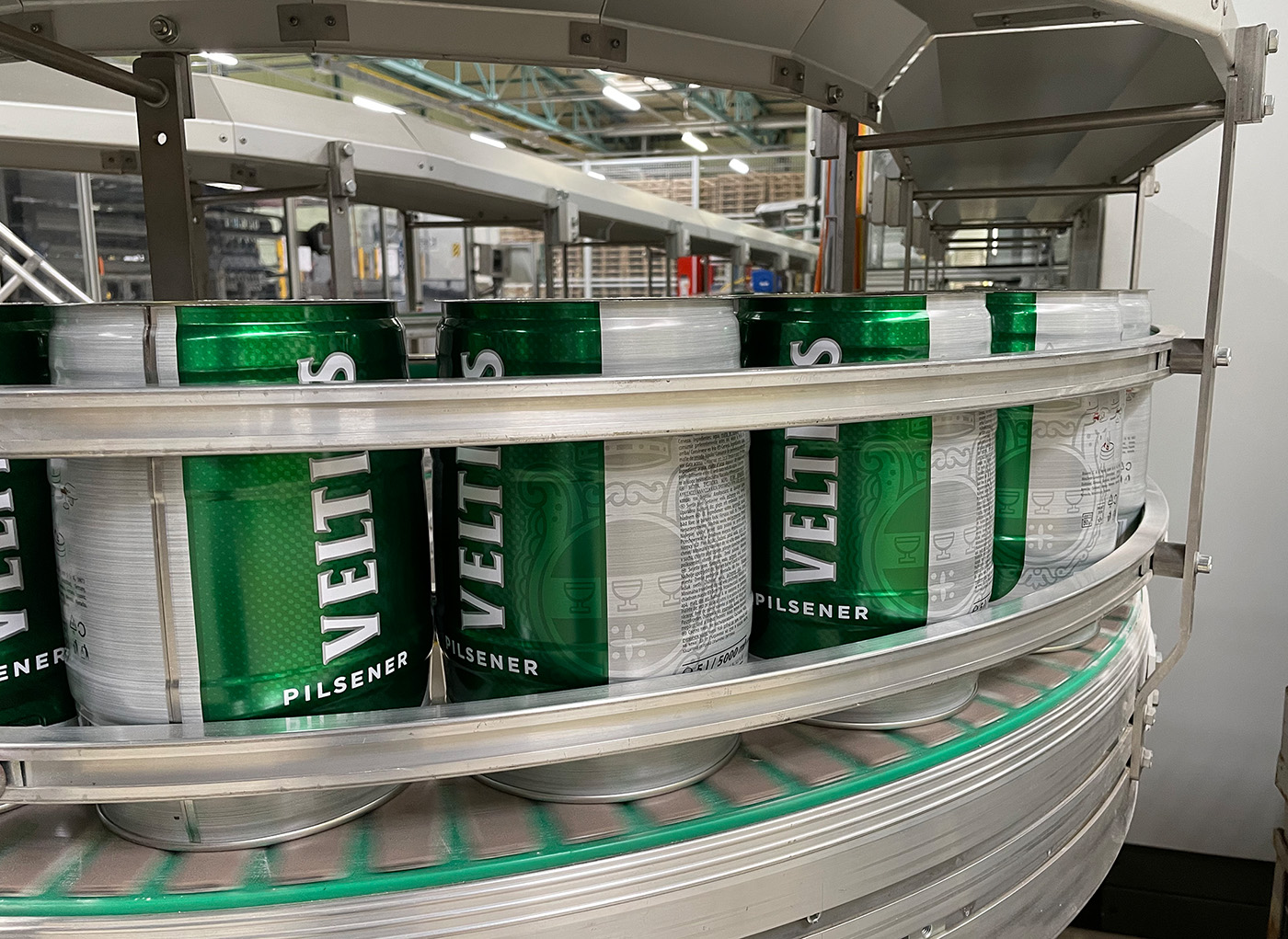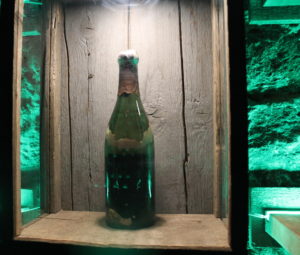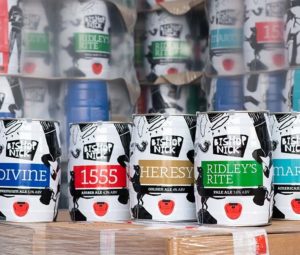In 2023, Veltins celebrated its 200th anniversary and simultaneously recorded its most profitable year with an impressive revenue increase of 5.3%. While the output of 3.26 million hectoliters declined by 2.9% after months of weak consumption, revenue surged by 5.3% to 441 million euros. “Our value-oriented growth strategy gives our traditional family brewery confidence in the future,” said Veltins General Manager Michael Huber when presenting the annual figures. Ulrich Biene, Head of Press and Public Relations at the brewery, emphasizes that the beer market presents a constant challenge. Nevertheless, Veltins has pursued a clear strategy to convince consumers. Veltins: Record sales despite decling beer market in the anniversary year.
Veltins: Revenue record achieved through flexible product concept
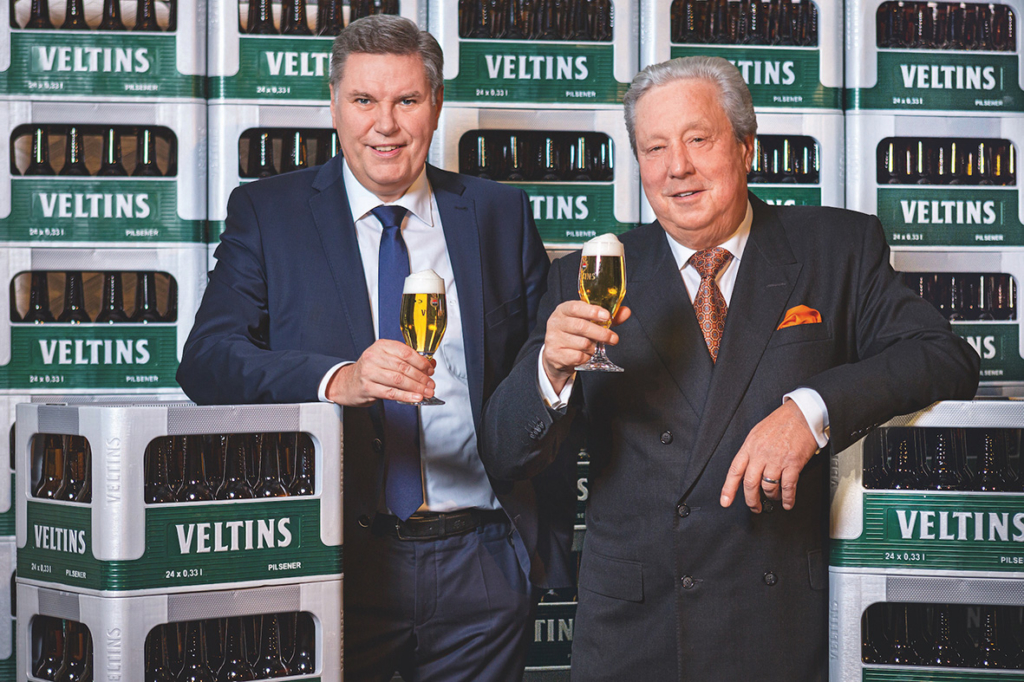
Veltins magament with Mr. Michael Huber (Authorized Officer of the Brewery C. & A. Veltins, right side) and Mr. Dr. Volker Kuhl (Managing Director Marketing / Sales of the Brewery C. & A. Veltins, left side)
Veltins focuses on meaningful product branding concepts that align with consumer taste preferences and build an emotional connection to the brand. The company remains vigilant, continuously adapting to the evolving needs of consumers. Ulrich Biene explains that the beer industry is subject to constant trends and growth cycles. “Over the past 25 years, we have experienced various cycles of styles that have fueled trends and, consequently, growth. Products that are successful today would not have gained attention a decade ago. Consumer desires undergo continuous change, which occurs cautiously yet consistently. The principle of vigilance and continuous market cultivation applies.”
Dr. Volker Kuhl, Managing Director Marketing/Sales of the Brewery C. & A. Veltins, states, “The changing demographics impact the reduction of the relevant consumer target group more significantly than before, leading to further competitive intensity.” The trend, especially among Generation Z, is towards non-alcoholic options, which Veltins has increasingly incorporated into its range. Last year, the brewery sold 199,200 hl solely with supplementary varieties such as Radler, non-alcoholic beers, and barrel sodas (Fassbrause). Veltins also recorded impressive growth in the fruity non-alcoholic range of barrel sodas, which saw an increase of +7.6%, gaining popularity. With this product range, the brewery offers its customers a fruity-refreshing alternative to traditional soft drinks and juices. The beer mix brand V+ also experienced a gratifying revival, demonstrating that beer mixed drinks are also trending. Thanks to this flexibility and breadth in the assortment, Veltins achieved its sales record in its anniversary year.
A changing market as both a challenge and an opportunity!
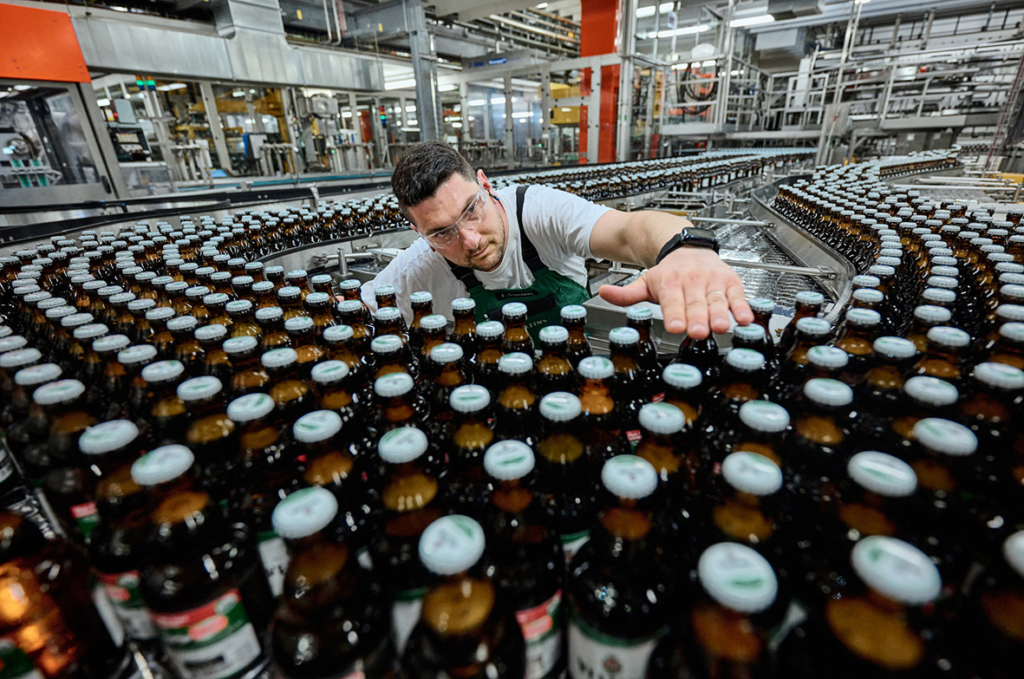
A changing beer market is the result of a variety of factors that have evolved over time. According to the Federal Statistical Office, breweries based in Germany sold a total of around 8.4 billion liters of beer last year. This represents a decrease in sales in 2023 compared to the previous year, with a decline of -4.5% or -3.94 million hectoliters. Holger Eichele, the Managing Director of the German Brewers’ Association, referred to it as a “very tough year for the German brewing industry.” Non-alcoholic beers have become significantly more popular. According to the Brewers’ Association, these now make up 7% of the German beer market. “We expect that soon every tenth beer brewed in Germany will be non-alcoholic. No other segment in the brewing industry has experienced such strong growth in the last ten years as non-alcoholic beers and non-alcoholic mixed beer drinks,” said Eichele.
Three reasons for a shifting market
- Demographic Changes: The demographic profile of the population is continually evolving. In Germany, the consumer group aged 18 and above has significantly decreased in size since the turn of the millennium. Instead, the age pyramid is widening at the top. Especially in countries with an increasingly older population, this can lead to a decline in beer consumption, as older people tend to consume less alcohol.
- Changes in Consumption Behavior: The way people spend their leisure time and engage in social activities has also changed. Many young people go out less than before, feeling sufficiently connected through social media. Overall, they exhibit different consumption behaviors.
- Alternative Beverage Trends: People of all age groups have become more adventurous in trying new things. In addition to beer, alternative and non-alcoholic beverages are gaining demand. This diversity offers consumers a wider selection and puts beer in stronger competition than before.
Overall, these trends reflect a shift in consumer preferences and behaviors. Breweries must respond flexibly, closely monitor market trends, and offer innovative products to remain competitive. Veltins Brewery has long recognized these signs, adjusted its strategic direction accordingly, and significantly expanded its range of non-alcoholic, low-alcohol, and mixed beverages – with success!
Sport sponsorship as a strategic tool
For over three decades, Veltins has relied on sports sponsorship as a strategic communication tool. Soccer in particular, as a sport with a wide reach, plays a key role in brand development. “Sport – it’s about coming together, emotions, and fun, but also about performance and sociability,” says Biene. “That’s why the brewery C. & A. Veltins has been investing in sports sponsorship for over three decades. Where victories are celebrated – Veltins is not far away. Sponsorship evolved into a valuable strategic communication tool within brand management in the 1990s. The Veltins brand therefore relies on a mix of sports sponsorship, in which soccer plays a leading role as a high-reach sport. There, the premium brand gains everything it needs in today’s competition: contemporary sympathy, current awareness, and essential dynamism!”
The special aroma of Veltins Pilsener – especially in the party keg!
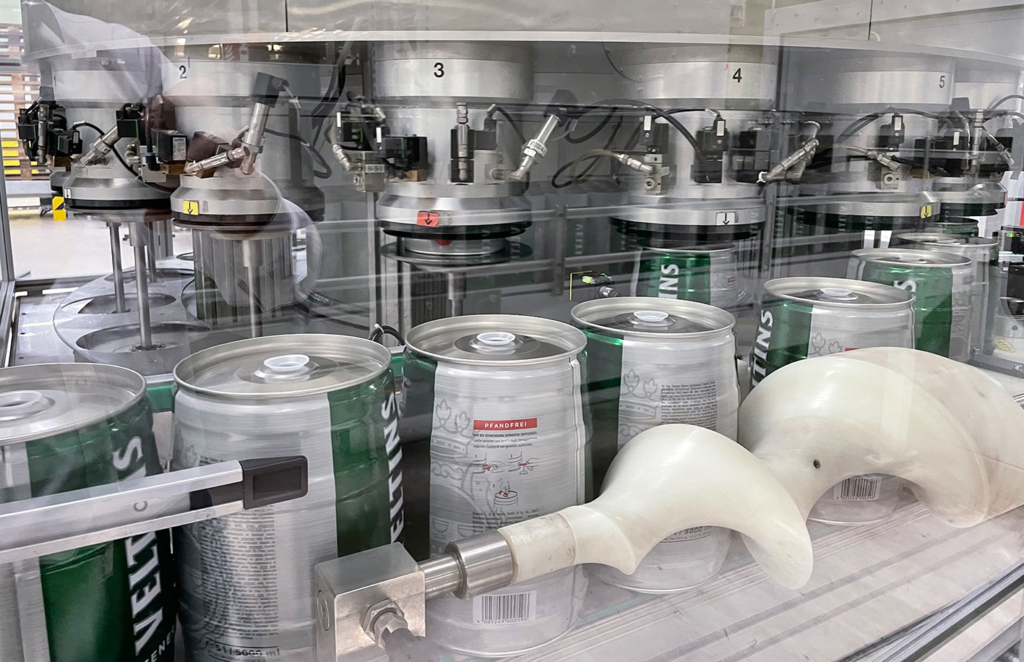
Still highly coveted despite a declining beer market: Veltins Pilsener. Its distinctive aroma is achieved through traditional brewing methods and a deliberate avoidance of industrially used hop extract. Veltins relies on its own yeasts and a gentle pitching process, which is highly appreciated by beer enthusiasts. “Market success in the fiercely competitive beer market still hinges on the good taste and brand appreciation of the products,” explains Biene the success of Veltins Pilsener. “Veltins Pilsener enjoys pleasing level of acceptance both in retail and in the food service industry alike. This delicious brew is also available in a 5-liter party keg, which is a popular choice for Veltins as well.
“There are always occasions where one wants to enjoy the fun of tapping their own beer in a small circle of friends. That’s where the 5-liter party keg comes in handy. Especially in the summer months, it is valued as a particularly sociable container among our brand enthusiasts,” says Biene. “It creates a wonderful sense of togetherness in an evening with friends. Everyone can help themselves as they please. The party keg represents relaxed beer enjoyment.”
Reliable partnerships for success
Collaboration with partners like Envases plays a crucial role for Veltins. Especially with seasonal packaging, reliability is essential to meet customer expectations. In recent years, Veltins has demonstrated that uncompromising quality, flexibility, innovation, and a strong brand identity are crucial for success in a changing market. Through clear strategies and staying close to the consumer, Veltins has been able to drive its growth and establish itself as one of the leading breweries in Germany.
